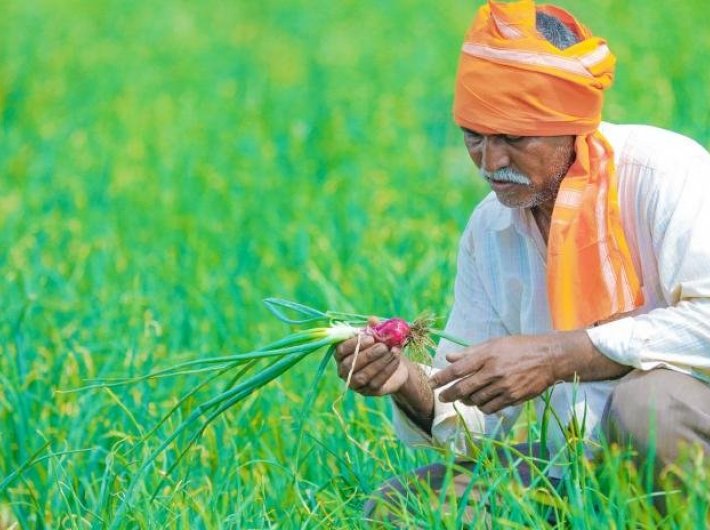For those not familiar with chess nomenclature, a gambit, like king’s gambit, is move that offers a material sacrifice of a pawn or bishop, in return for a strategic advantage that may benefit the person initiating the gambit. The respondent has the option to accept or decline the sacrifice and pursue countermoves in its best wisdom and interest.
In a dramatic turnaround, the prime minister has announced repeal of three farm laws which were passed last year, and which had galvanised farmers into a long-drawn protest in the areas bordering national capital. While announcing the repeal of law, he has announced setting up of a committee to dwell on zero-budget farming and Minimum Support Price (MSP) for farm product. The panel will have representatives from the central and state governments, farmers, scientists, and economists. The farmers’ bodies have yet to take a final view on their response to it at the time of writing this piece, while many leaders are on record to continue with the agitation programme till the laws are repealed in the next session of parliament and also discuss other related issues like MSP guarantee etc.
A lot has been written about this unusual and swift move by the prime minister, its timing and impact on poll-bound Punjab and UP, more specifically western UP, the epicentres of the agitation. Many pollsters have hailed the retreat as a political masterstroke likely to reap rich political dividends. As a student of political science and who has studied voting behaviour, I have strong reservations about those assumptions. The negative backlash could be more damaging than goodwill created through this retreat manoeuvre. In the present article, however, the focus is on agronomics and not around the politics around it and hence will focus on present farm situation and the emerging fault lines.
As a quick recap, and for those not familiar with details, the three laws which are in the process of repeal had proposed a framework for agriculture reforms with entry of corporates and traders as buyers of agricultural produce market. Agriculture needs capital outlay both from government and private sector. The proposed law also endeavoured to legislate on contract farming and boost production. Finally, deregulation was proposed by withdrawing laws like essential commodities Act which regulated stockpiles of many agricultural commodities and hindered free market. The problem with these laws was that adequate consultations were not made with all the stakeholders, and bills passed without being examined in detail by a parliamentary committee. The basic problem was lack of trust and the intent was suspect by the stakeholders, more so when introduced through an ordinance in the time of the raging Covid-19 pandemic.
In the meantime, only two months back in September 2021, the Ministry of Statistics and Implementation came out with a lengthy, 4,264-page document, titled ‘Situation Assessment of Agricultural Households and Land and Holding in Rural India, 2019’, which contains several statistics around the conditions of farmers today. A few of the finding are reproduced below to help understand the plight of farmers today:
• 54% of households in rural area are dependent on agriculture
• 70% of them hold landholding < 1 hectare
• 69% of people work as self-employed in Agri production
• 17% of land held by tenants
In addition, the survey points out that 84% land used is for crop production only. From the agricultural households, those owning cattle is 16% and poultry 11%.
On rural indebtedness, 50% of agriculture households were indebted, with almost 20% lending from moneylenders. The households’ average debt was ₹74,121, which is over six months of household income. One disturbing data shows that farmers’ net monthly average receipt from crop production is ₹3,798 against average income from wages ₹4,063- In effect, farmers have been reduced to farm labourers.The farm distress is evident and disturbing from this large survey report, which has not got the attention and deliberation that it deserves.
Against this background, a comprehensive review of the farm sector with focus on doubling the income in five years as assured by the government need to be undertaken in right earnest with all stakeholders, including farmers representation in a meaningful way. Measures for optimising agriculture and related activities like animal husbandry, horticulture, pisciculture etc. should be studied in depth to increase production and productivity. What is more critical is to build up an eco-system and value chain including agro-industries and agro-services with forward and backward linkages to these sectors.
Having said that, in the interim till agriculture reaches its optimal level, Minimum Support Price (MSP) is essential for survival of the farmers. While reforms are required and will be welcome for entry of capital, technology and investors into the agriculture segment and modernisation, the social equity cannot completely be left to market forces at this stage. Besides, as rightly announced by the prime minister, we need to evaluate zero budget farming keeping in view, a point of equilibrium from the points of farm ecology and economy.
Mishra is a policy analyst and columnist.
